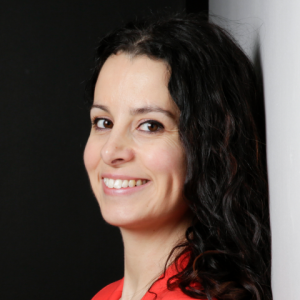Stories from the field
A push over the finishing line: A story about decentralization in Bangladesh
The GPSA helps countries to unlock their potential for social change by aligning the efforts of government and civil society organizations (CSOs) and brokering collaboration between them.
In Bangladesh, a GPSA grant helped combine formal government reforms with local community participation. This included bringing in women and other often marginalized voices.
A key lesson from the GPSA and from global experience is that social accountability is more likely to be effective when it complements broader government policy.
The unfinished business of decentralization and citizen participation
A nearly cooked meal isn’t great when you’re hungry and a nearly finished boat isn’t very useful when you’re stranded. The same can be said about the unfinished business of decentralization and citizen participation in many parts of the world.
The third wave of democracy that swept the world after the fall of the Berlin Wall brought about ambitious decentralization reforms in many countries. Much political capital has been spent on institutionalizing these changes and making decision-making more citizen-centric. However, in some countries, there is still a gap between what was passed into law and how those same laws have been implemented in practice.
Take Bangladesh, for example, where in 2009 the government passed the Local Government Act. This progressive law sought to improve development outcomes for poor and vulnerable people by strengthening community involvement in local government. It created a legal framework for citizens’ voice through decentralized planning and decision-making in the country’s 4,550 newly established Union Parishads.
And, sure enough, the Act did induce civic participation in planning and decision-making at the local level. However, the problem was that participation was not inclusive, which resulted in the plans not being perceived as representative of the communities they sought to serve.
GPSA grants can help push decentralization reforms over the finishing line
The GPSA’s grant partner, CARE Bangladesh, working with a coalition of organizations, made the effective implementation of the Local Government Act a cornerstone of its work on local governance in Bangladesh. Through a four-year grant from the GPSA (2013-2017), the organization implemented the project Journey for Advancement for Transparency, Representation and Accountability (JATRA) in 15 Union Parishads. The project introduced decision-making spaces and social accountability tools, such as citizen scorecards, to support citizen participation in budget planning and implementation and improve access to local budget information.
The results brought the Act full circle as a more representative decision-making space was created in the Union Parishads. The participatory methods used generated data that helped Union Parishads to meet the minimum conditions for receiving the statutory Block Grant allocation (they include clean audits, evidence of participatory planning and budgeting, and timely submission of six-monthly reports).
Importantly, the project helped to increase the participation of marginalized groups in public meetings of the Union Parishads. Of those who participated in budget planning meetings, 68% were poor/marginalized people. The project also helped shift social norms around public participation of women in decision-making. Public meetings in rural areas are frequently seen to be the responsibility of men, but by the end of the project, on average, 51% of attendees in the meetings were women.
This finishing line is a lot closer when governments are committed to change
In the case of Bangladesh, these positive results could be unlocked because CARE’s efforts to strengthen local civic participation aligned with the commitment political decision-makers had already set out in the Local Government Act.
A key lesson from the GPSA and from global experience is that social accountability is more likely to be effective when it is collaborative and complements broader government policy and programs. When governments and public bodies are committed to change but are finding it difficult to make it happen, joint problem solving with civil society is far more likely to be a game changer than if a government has not (yet) committed to reform.
By providing support to collaborative social accountability initiatives that engage citizens, civil society groups, and public sector institutions in joint, iterative problem solving to improve service delivery, sector governance, and accountability in 34 countries, and by engaging over 200 civil society organizations and over 300 global partner organizations, the GPSA has helped push many public sector reforms over the finishing line.
I have drawn from this para to the subsequent para. I don’t think we need to engage in this complexity for this particular story.
Authors
Rowlands Kaotcha
Mr. Rowlands Kaotcha is a Global Vice President and Director for Africa and Mexico, after having served as the Southern Africa Regional Director for The Hunger Project, Country Director in Malawi since 2004, and as dual Country Director of Malawi and Mozambique since October 2017. Recently, Rowlands led The Hunger Project’s expansion into Zambia and also serves as the Southern Africa coordinator for the Movement for Community-led Development.
related content
Capitalizing on the ability of civil society organizations to collect information from users of public services about the state of public service delivery, and effectively channeling this information to decision-makers in government and parliament can contribute to evidence-based policymaking, and, ultimately, to improved public services.


